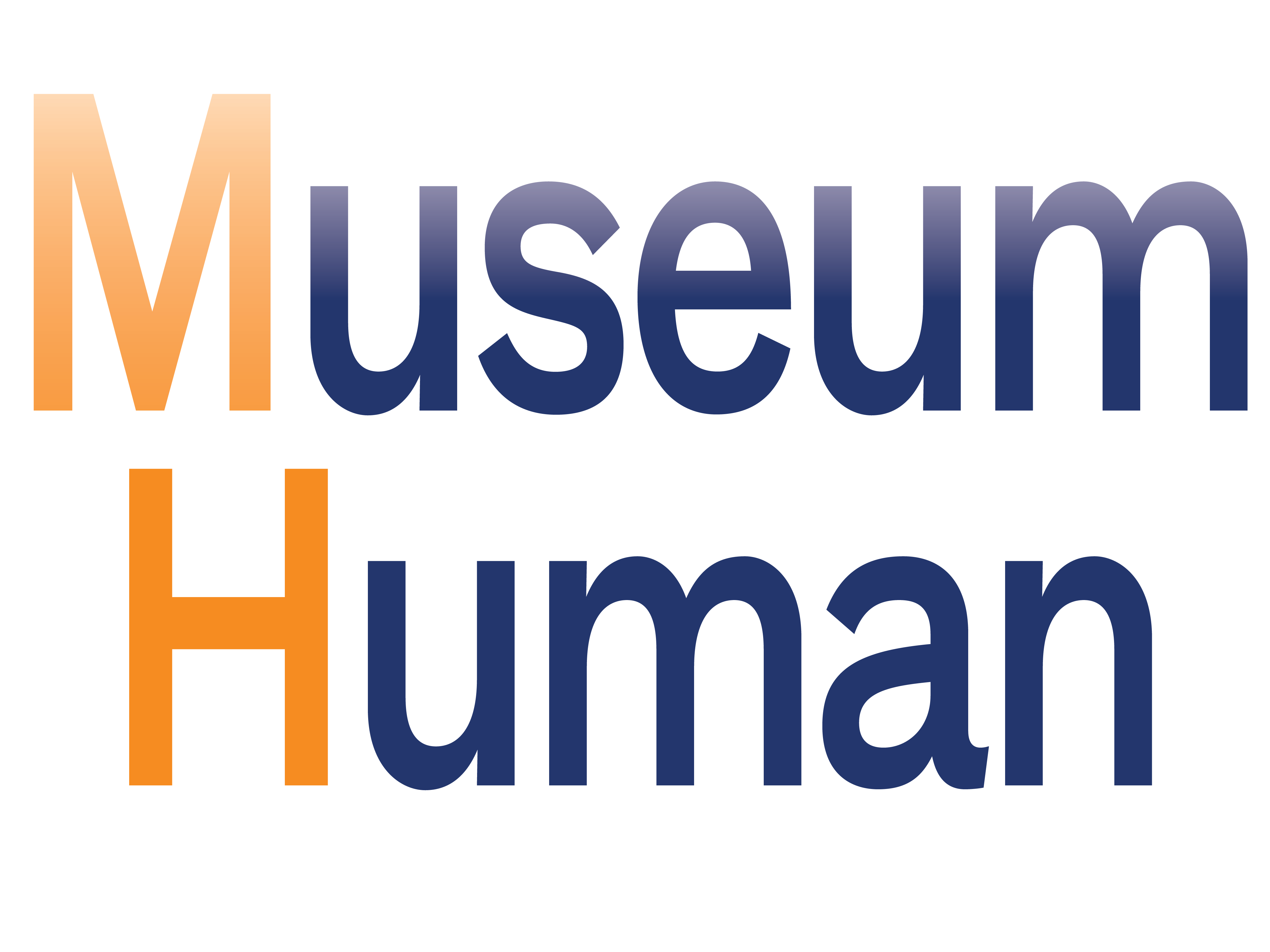
What does the internal turmoil at a small software company have to do with museum org culture? Read on.
If you're reading this and not a subscriber to Museum Human, consider scrolling to the bottom and signing up now—it's free and is the only way to read the site's longer weekly post on the organizational culture of cultural organizations.
[If you want to read about the Basecamp debacle first, good articles which I link to below are here, here, here, and here. This is the actual staff letter from Basecamp's founders which set the whole thing off.]
A little Base-ground
I don't remember when I first became interested in the Basecamp program—it's more than an app, less than a suite, probably akin to a method. A few years back, I had a workflow role in my department and was looking for a common place for documents, communication, and schedules, and Basecamp seemed promising.
The results of bringing it into the department were surprising. Project-management-style people I thought would love Basecamp in fact hated it; they already had a method, however imperfect, and thought they would have to redo all their lists, spreadsheets, email threads, and calendars, or they would have to rethink whom to keep this information from. The software-averse people I thought would hate it in fact loved it, because Basecamp felt more like a system than just a new program, and going from zero organization to something was liberating.
Ultimately, I had to give Basecamp up for reasons which had more to do with the organizational culture than with any weaknesses in the platform. (An org I worked with outside the museum utilized Basecamp so I got to use it anyway.) I also kept up with Basecamp because the company's founders Jason Fried and David Heinemeier Hansson regularly wrote about progressive organizational cultures, best exemplified by their book It Doesn't Have to Be Crazy at Work.
In it, they extolled—from their own experience running this company—a culture of putting human needs ahead of, well, nonsense. Basecamp as a workplace sounded pretty intense, with a small staff involved in lots of projects, sprints, experiments, and deadlines, but seemingly without the hazardous time-sucks and interruptors which make dealing with a workplace so difficult.
Here are some of my own notes from my reading of their book (anything straight from the book is in quotation marks):
Calendar tetris—open work calendars allow people to slice up other people’s days. [I’ve noted myself the way that people get called into meeting with [important person] and thus have to cancel things and that never made any sense to me, and somehow I’m naive because of that.] "At Basecamp, work calendars are private, so no one can seize anyone else’s time."
"Trust is a battery which only has so much charge. To recharge, you have to do things differently."
Most deadlines are really “dreadlines” done to make people fear and panic. Deadlines should be real and believable and final. [this might be unfair to museum people who work in a power imbalance and have no authority to enforce deadlines, but still …]
“Commitment not consensus.” Bosses will rarely overrule employee decisions but once the decision is made, everyone is held accountable. [Bezos does this.]
Against “best practices” because they are rarely flexible, don’t evolve as the workplace does, don’t work for different people in different situations, they become folklore and legend, “the way we do things here." [For me, it’s too easy to make exceptions, so best practices would need to be rewritten once a year.]
The only way to be calmer is to give yourself less to do and not work so many hours. If a workplace process is making people work harder for no real benefit, get rid of it. Also limit the number of things you try to do and try to be. "A business is a collection of choices.” You have the choice on how hard to work, and how many hours to make people work (if you’re the boss).
Don’t jump on new ideas and projects right away—let them sit and finish what you were doing, then see if it’s still as important as it seemed. (At the Met people are always getting pulled off something to another thing.)
You don’t learn without launching something and see how it’s received.
And, finally, something from the book which I couldn't find in my notes, but I know I've spoken about to colleagues: workplaces need to have an "appetite" for projects, taking on as much as they can handle. If there's more work than the appetite of the org, then no more new work. It might help with understanding the balance between old and new projects.
The Basecamp brouhaha
So, back to Basecamp itself. I assumed that any book which extolled a less-friction workplace would have a bring-oneself-to-work-if-you-want mentality. Perhaps that was true for Basecamp for a while—until the staff, it seems, started questioning if their workplacewas all it claimed to be.
Not surprisingly, it sort of started with a list of funny names (of people they dealt with outside the company). Workers began to claim in internal discussion channels that this micro/macroagression violated the vision and spirit of the company, and some of the staff who'd been involved in creating or maintaining the list apologized. Some staff linked the internal culture to larger societal issues to the point where the founders eventually pushed back and shut down all internal discussions—even if the issues were internal.
For museums, which have as positive view of their mission-driven, non-profit selves, it's a valuable warning. The museum-sector internal calls for change (also here) have led to some action plans—but also pushback from leaders and elite audiences. It's a reminder that museum leaders say they support people but usually feel a deeper loyalty to the preservation of the institution. And, as leaders of private institutions (with some exceptions), what they say goes.
The org culture consultancy NOBL has an excellent article on the Basecamp blow-up from an org design perspective. The advice for leaders—indeed, anyone with any influence in internal discussions—is worth citing (again, NOBL's words in quotes, with my commentary):
- "accept help"—as in, don't assume you can manage a delicate situation all by yourself (just because you're a great, singular leader).
- "tolerate discomfort"—and not just because you're making tough decisions, but because you've been wrong.
- "engage to be understood"—bring more people into the discussion.
- "remember who you serve"—Basecamp's leaders were surprised that millions of people on social media were suddenly involved in this internal matter; for museum leaders, think of your staff, audiences, people who live nearby, as well as social.
Brave New Work, the podcast from Aaron Dignan and Rodney Evans of the org design company The Ready, devoted an enitre recent episode to the Basecamp issue. It's a great listen, and Evans made two particular points worth noting:
- "the only way out is through"—leaders (but, again, staff members who have influence in conversations) have to keep talking it through; they can't just pick up the ball and go home, claiming that discussion is a "slippery slope" (Evans pointed out that this argument is a "lazy" way of shutting down conversation that the Basecamp founders themselves started through their speak-your-mind internal culture).
- "[the company] exists at the enjoyment" of the founders—Basecamp is not a democracy and only the founders have authority, which is a critical acknowledgment—the workers only had one ultimate method of accountability, and the ones who quit exercised it. Will museums be any different?
Org culture guru Stowe Boyd wrote eloquently about Basecamp and the larger reality of workplace leadership striking back. I feel like I quote Boyd a ton so I hope you'll read his deep dive into the implications of Basecamp's founders' coup (my choice of words) of sorts against their own company by attacking and overthrowing its culture.
Perhaps there's a more ominous analogy to be made here, as Basecamp's culture was ruled by norms which had become expectations and assumptions. Boyd's ending point can't automatically be extrapolated to societies … can it?
And of course, this will have a chilling effect on other democratic workplaces, where CEOs contemplating similar moves may think of themselves as libertarian liberators, cutting through the bullshit, rather than autocrats that want to stifle dissent and push back any striving for more co-determination in the workplace.
When leaders change the very nature of discussion, self-destruction can happen, as economist Umair Haque points out about Britain.
Finally, I'll end with a good take on Basecamp's self-betrayal as an organization by Emily Pothast on the Medium publication Marker. I liked this part:
… like many tech founders, the Basecamp bosses want more than anything to be able to believe in the myth of their own benevolent greatness, which is easier to do when they don’t have to answer any hard questions or grapple with any difficult truths.
Pothast follows up with this deeper dive into the "pyramid of hate" raised by staff members (there's more about the pyramid here.)
Remember that in this day and age, your organization's internal cultural discussions can get out into the larger world (and, as it should, vice versa). For museums, this is especially important, as they take the public's trust so seriously. But the stakes for museum cultures will only get more acute as the the three crises intensify, with the controversial (wait for it) push to returning remote to work stirring the pot.
I hope you enjoyed this longer links piece—if this topic continues I'll revisit in another LOTW or perhaps a full post.
If you're reading this and not a subscriber to Museum Human, consider signing up for a free subscription below—it's the only way to read the site's longer weekly post on the organizational culture of cultural organizations. Thank you for reading!
cover image by Tamanna Rumee on Unsplash [description: a circle of paper clips on a blue background]

Links of the Week: May 13, 2021: Ace off Base by Robert J Weisberg is licensed under a Creative Commons Attribution-NonCommercial-ShareAlike 4.0 International License.






